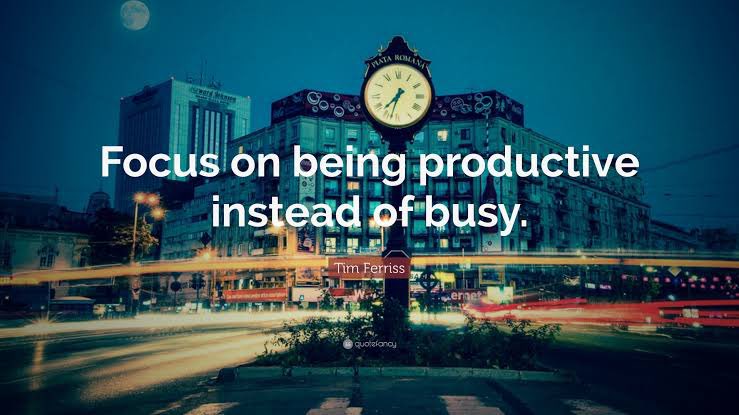It takes 21 days to form a habit quote
21 Days to form a Habit quotes (to power you with enough motivation to make BIG life changes)
About to embark on a journey of changing your life? Need some inspiring habit quotes to help power you through? According to research, it takes 21 days to form a new habit. For 21 days straight you’ll need to summon the willpower of a monk to power you through. After that period, your behaviours become a natural part of your routine and you no longer have to rely on motivation to get you to do the new habit.
This post has picked some of the most empowering habit quotes to get you through. So if you need some handy motivation at your disposal, you’ve come to the right place. Download your copy of 21 days to form a Habit Quotes pdf, and you’ll be well on your way to creating your new life and routine.
Does it really take
21 days to form a new habit?There is a very old quote that tells us that it takes just 21 days to form a new habit.
This 21 day habit quote was originally said by author of much loved self help book, Psycho-Cybernetics, Dr. Maxwell Maltz. Maltz’ research found that it took 21 days to form a new habit because that is how long it took for our brains to produce new neural connections and neural pathways. It takes 21 days of consistent practise for these neurons and pathways to solidify enough for the new behaviour to become an automatic part of a routine.
And this is why people spend a lot of time trying to form new habits. Because when a new behaviour becomes automatic and therefore a habit, you no longer need to rely on motivation or discipline to do the new behaviour. It simply becomes a part of your routine. In fact, it would almost seem weird to not do it.
This doesn’t just work for forming new habits. It can also apply to breaking bad habits like quitting smoking or eating fatty or sugary foods, or even weaning yourself off coffee (something I’ve had personal experience with recently).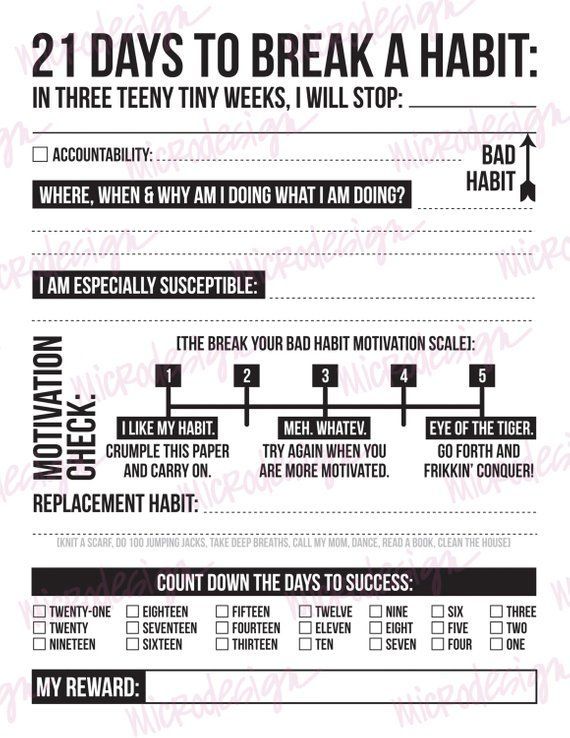
The 21/90 Rule: 21 Days to make a habit. 90 days to make a lifestyle
Recently, new research has materialized that suggests that it actually takes more than 21 days to form a habit. In fact, it takes 90 days. Phillipa Lally, a health psychology researcher at University College of London, conducted some research to find out how long it takes for a new behaviour to develop into a habit. Participants were asked to pick a new behaviour and practice it over a period of 12 weeks, then report back how automatic the behaviour felt over time.
The findings suggested that it took on average between 2-3 months to form a new habit. These findings sure did send shockwaves around the self-development community where the popular held belief was that it took 21 days to for a new habit.
So does this mean it’s not possible to form new habits in 21 days?Well actually NO. The study has some limitations.
The most important one being that there is very little information regarding the personal motivations for the people who participated in the study.
As we all know, motivation and having a strong ‘why’ is a huge factor in determining how successful you’ll be in achieving a goal.
If you’re reading this article, that means you’re ACTIVELY LOOKING for how to form a new habit. Which automatically puts you in a ‘highly motivated to change your life’ category.
This simple mindset different gives you a huge advantage over the average participant int the study referenced above.
There is a considerable body of research that shows just by having a good and meaningful ‘why’ (as in your purpose for pursuing your goal), makes you significantly more likely to achieve it.
So in other words, if you’re pretty motivated to make important life changes, and you have a meaningful enough reason to do so, then it is more than possible for you to reach your goal of creating new habits within 21 days.
How to do a 21 Day Habit Challenge
A 21 Day Habit challenge is perhaps one the best ways to capitalise on your motivation and discipline to speed up the process of creating new habits.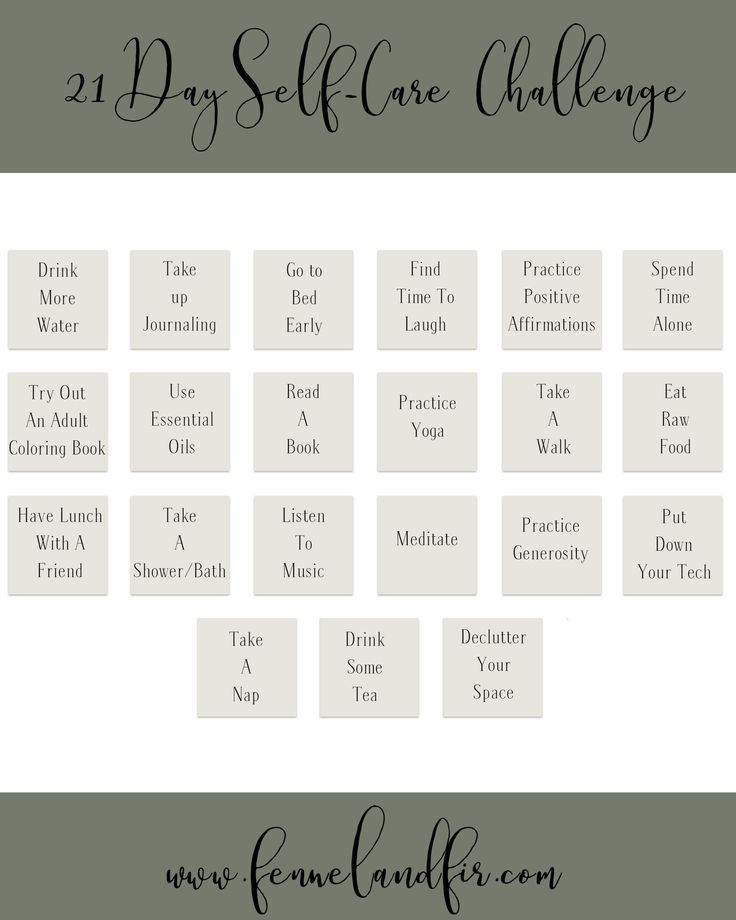 If you’ve ever tried to adopt a new habit or tried to break an old one, you’ll know how hard it can be. So if you’ve worked on you’re ‘why’ and your motivation is pretty high, now is the perfect time to start a 21 day habit challenge.
If you’ve ever tried to adopt a new habit or tried to break an old one, you’ll know how hard it can be. So if you’ve worked on you’re ‘why’ and your motivation is pretty high, now is the perfect time to start a 21 day habit challenge.
If you’re not quite there yet, then try reading this article and download the accompanying worksheet to determine your ‘why’ so that you’re hyped up on your motivation and discipline.
When doing a 21 day habit challenge, this is generally the gist of how it goes:
Week 1: Your motivation is highest at this point. This will help you be more disciplined and committed to adopting the new habit. Creating change will feel the easiest at this point. Towards the end of the first week, you’ll start to feel the weight of your new commitment and motivation begins to wane.
Week 2: This is when resistance towards your goals will be at its peak. You’ll start to question whether all the effort is worth it, creating change will seem the hardest at this point.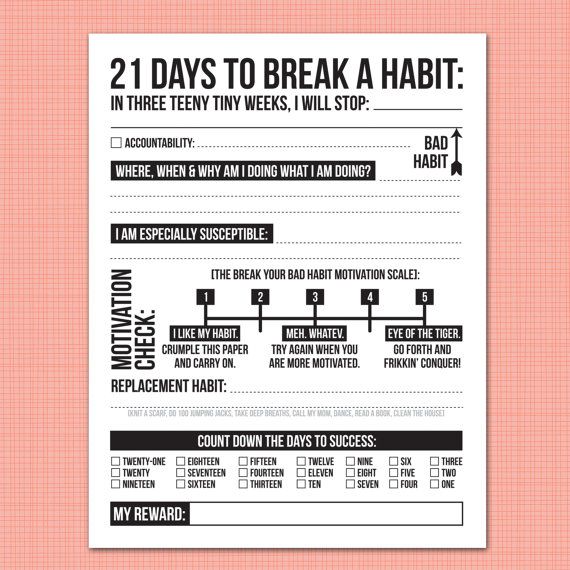 There is a strong desire to revert back to old practices.
There is a strong desire to revert back to old practices.
Week 3: If you’ve kept consistent till this point, this is when you start reaping the rewards of your hard work. The behaviour will feel more natural and automatic. There is less need to talk yourself into doing the new behaviour or to parent yourself through the process. It just seems easier.
Pushing through Resistance in your 21 Day Habit ChallengeWeek 2 is generally where many people feel the wobble. This can be either make or break for your 21 day habit challenge. If you can push through the resistance, then you’ll soon reap the rewards in week 3.
In my experience of forming new habits, I find two strategies very useful to help me push through week 2 resistance.
- Write affirmations. Writing affirmations during your 21 day challenge will help your speed up the process of creating new pathways in your brain. When you write your affirmations, write them in the present tense, and don’t just say them, feel the emotional state of what it ‘feels’ like to embody the new habit.
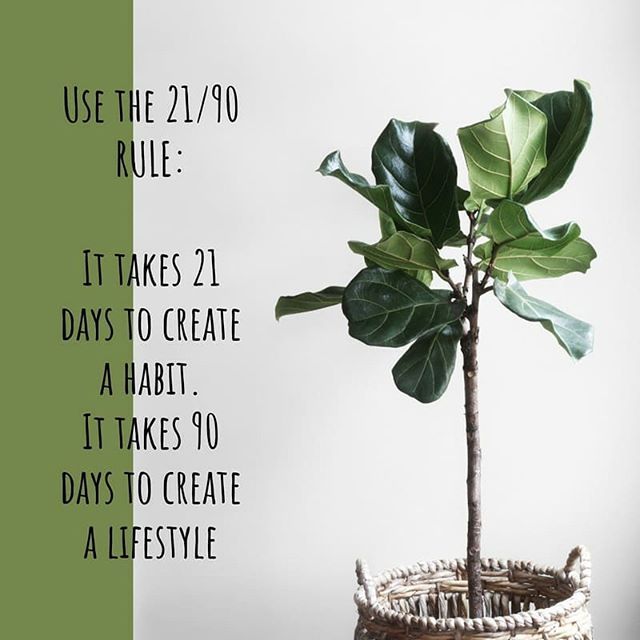 This helps build the new habit as part of your identity. According to James Clear, building a new ‘identity’ is critical to the success of a new habit. When we see ourselves as a writer or a runner, practising the new habit associated with that identity becomes a lot easier to do.
This helps build the new habit as part of your identity. According to James Clear, building a new ‘identity’ is critical to the success of a new habit. When we see ourselves as a writer or a runner, practising the new habit associated with that identity becomes a lot easier to do. - Reading quotes to help motivate you through the resistance. You know how a quick cup of coffee can perk you up and power you through an exhausting study session? Well that’s the effect of reading through quotes. Having a handy stash of quotes nearby is a quick and easy way to perk up your motivation to power through resistance and remind you for why you’re working so hard to create the new habit.
So with that said, here is a collection of 21 days to form a habit quotes to remind you of what you’re working towards. Print them out and stick them on your desk or in your room to boost you with some speedy motivation. Good news is, once your new behaviour becomes a habit, you’ll no longer need to rely on motivation to do the new behaviour.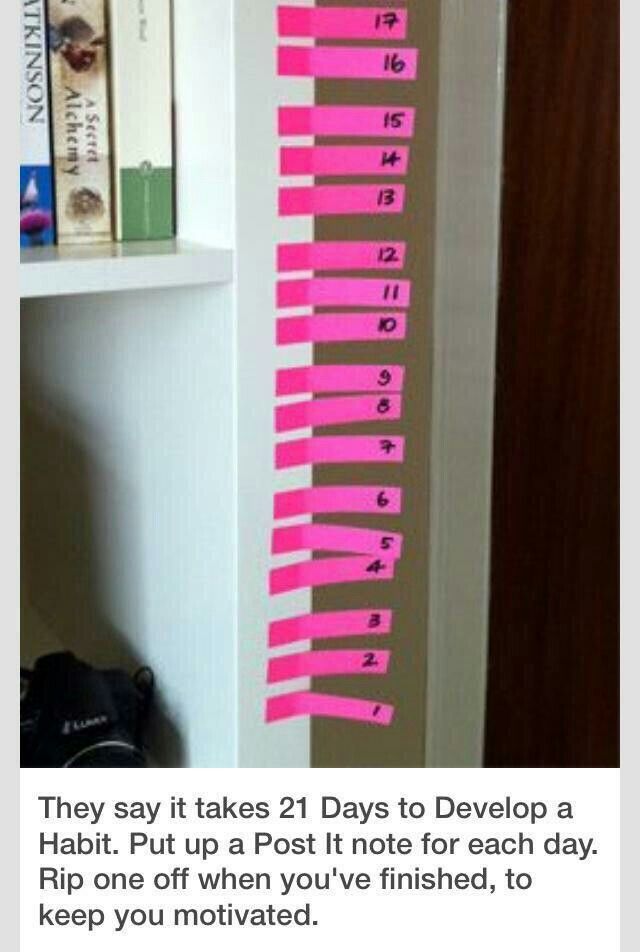
21 Days to form a Habit Quotes
It takes 21 days to make a new habit. Today is day 1.
– Robin Sharma
Successful People are simply those with successful habits
– Brian Tracey
Your habits will determine your future – Jack Canfield
Motivation is what gets you started. Habits is what gets you going.
– Jim Rohn
21 days to form a habit quotesDepending on what they are, your habits can either make you or break you. We become what we repeatedly do.
– Sean Covey
Healthy habits are learned in the same way as unhealthy ones. Through practise.
– Wayne Dyer.
We first make our habits. Then our habits make us.
– John Dryden
A change in bad habits leads to a change in life.
– Jenny Craig
21 days to form a habit quotesChange might not be fast, and it isn’t always easy.
But with time and effort, almost any habit can be reshaped.
– Charles Duhhig
Bad habits are easier to abandon today than tomorrow.
Proverb.
Good habits are as addictive as bad ones. And a lot more rewarding.
– Harvey Mackay
Bad habits are like chains that are too light to feel until they are too heavy to carry.
– Warren Buffet
Bad habits are easy to develop but hard to live with. Good habits are hard to develop but easy to live with.
The secret to breaking any bad habit is to love something greater than the habit.
– Bryant Mcgill
21 days to form a habit quotesFirst forget inspiration. Habit is more dependable. Habit will sustain you whether you’re inspired or not.
– Octavia Butler
You’ll never change your life until you change something you do daily.
The secret of your success is found in your daily routine.
– John C. Maxwell.
Success is the sum of small efforts, repeated day in and day out.
– Robert Collier
You are what you repeatedly do, Excellence therefore, is not an event, but a habit.
– Aristotle.
You leave old habits behind by starting out with the thought “I release the need for this in my life.”
– Wayne Dyer
I fear not the man who has practiced 10,000 kicks, But I do fear the man who has practiced one kick 10,000 times.
– Bruce Lee.
Replacing just a few negative habits with a few positive ones, can easily be the difference between being mostly unhappy and being happy almost all of the time.
– Tynan
Choices are at the root of every one of your results. Each choice starts a behaviour that over time becomes a habit.
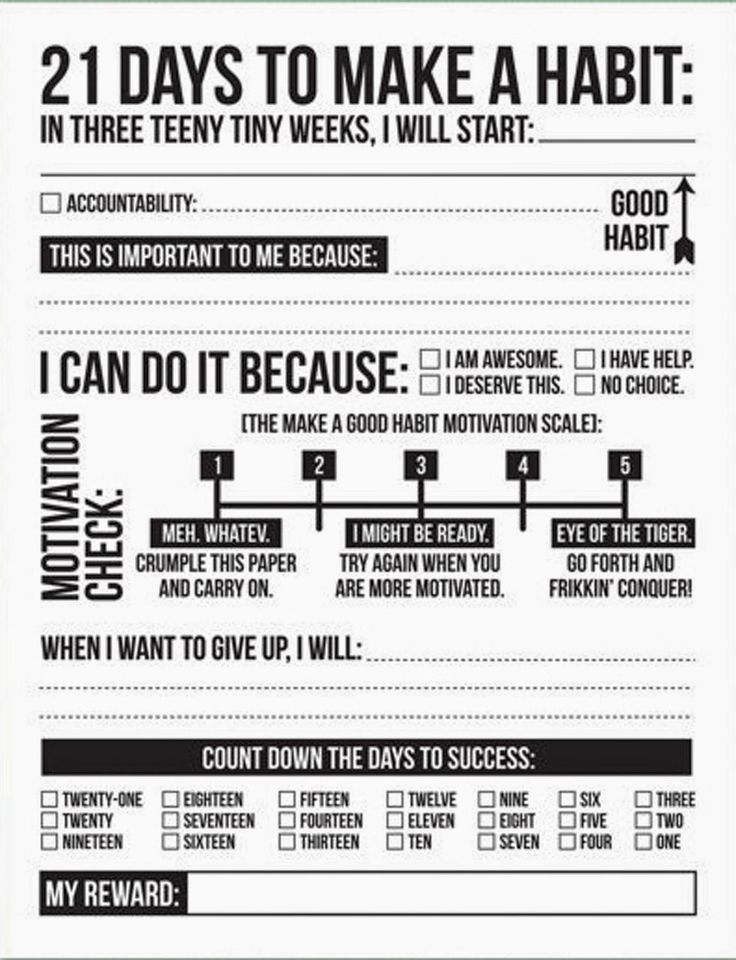
– Darren Hardy
21 days to form a habit quotesIt takes 21-28 days to form a habit. Consistency is the key to success.
Our choices become our actions. Our actions become our habits. Our habits become our character.
– Michael Hyatt
You can’t form a habit if it doesn’t have a routine to stick to.
– Robyn Conely Downs
Creativity is a habit. And the best creativity is a result of good work habits.
– Twyla Tharp
All habits start slowly and gradually and before you know you have the habit the habit has you.
– Zig Ziglar
A nail is driven out by another nail. Habit is overcome by habit.
– Erasmus
Remember to grab your free downloadable printable below so you can stick it on your wall and have instant access to doses of motivation throughout your day.
4 Tips to make your new habits stick
- Less is more
It can be easy to be carried away with motivation and focus on more habits.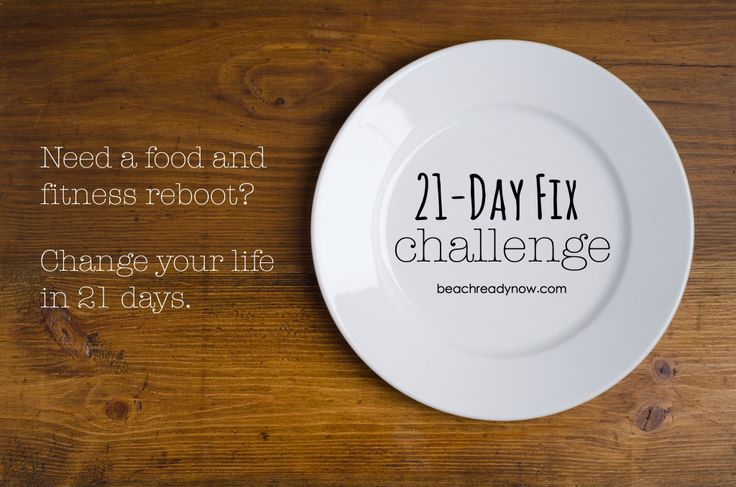 But this might set you up for early failure because sustaining more than 1 new habit will be a lot harder to do. So focus on one habit at a time. When you start mastering the first habit, you can then add another one. From my own experience, this is the best method to go with rather than adopting several new habits all at once. It can be done, but you will need an incredible amount of will power and discipline to do it successfully.
But this might set you up for early failure because sustaining more than 1 new habit will be a lot harder to do. So focus on one habit at a time. When you start mastering the first habit, you can then add another one. From my own experience, this is the best method to go with rather than adopting several new habits all at once. It can be done, but you will need an incredible amount of will power and discipline to do it successfully.
- Create a trigger for your habit
The best way to adopt a habit is to work it into a routine you already have. For example, if you want to adopt the habit of reading for 15 minutes every day before you head off to work, pair it with your morning coffee time. As soon as you switch on the kettle, you’re brain will pick up it’s cue that it’s time to get your book out.
This technique also works when you’re trying to adopt a habit that feels hard or boring. When you pair it with a behaviour that you enjoy (like drinking coffee), your brain creates new wiring thus associating the hard habit with a pleasurable feeling.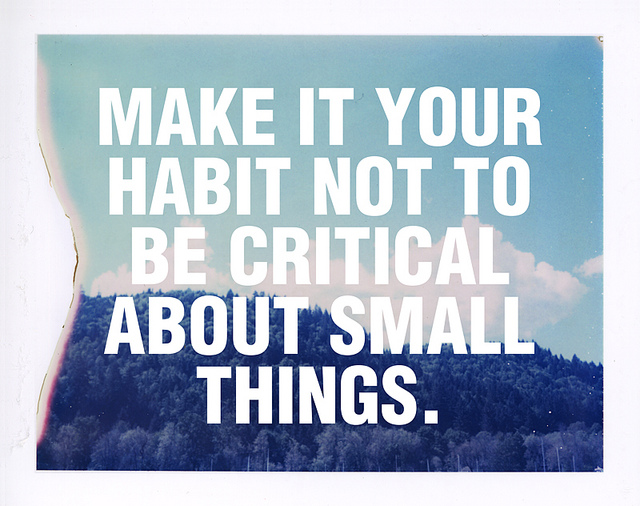
- Get an accountability partner
Research shows that by simply reporting back to someone about the progress of our goals, increases our likelihood of achieving it by 95%. That’s almost as good as done. So if you fancy those odds for yourself, get yourself an accountability partner you can meet with on a weekly basis. Knowing you have to report back to someone will give you the fire you need to be consistent.
- Be prepared for a wobble
There will be a few hiccups along the way. But the more aware you are of them, the more prepared you’ll be when you encounter them. Download a copy of the 21 days to form a habit quotes and stick them on your wall. If you do fall off the wagon, remember to be kind to yourself. We all make mistakes, and it’s through the process of making mistakes we learn to become better.
Conclusion
How Long Does it Take to Form a Habit? Backed by Science.
Maxwell Maltz was a plastic surgeon in the 1950s when he began noticing a strange pattern among his patients.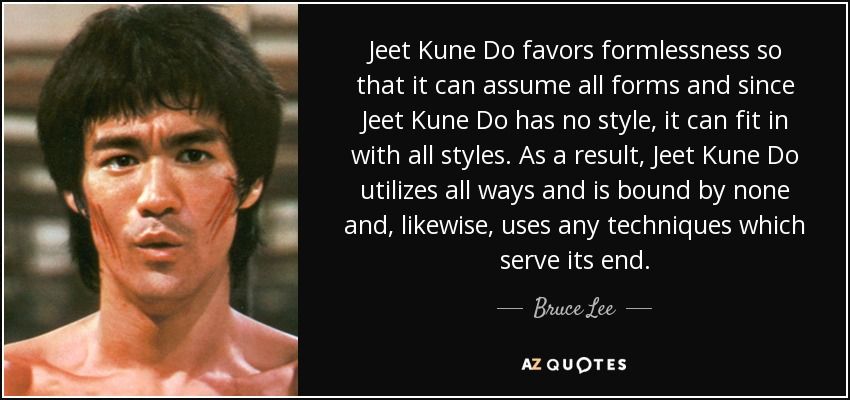
When Dr. Maltz would perform an operation — like a nose job, for example — he found that it would take the patient about 21 days to get used to seeing their new face. Similarly, when a patient had an arm or a leg amputated, Maxwell Maltz noticed that the patient would sense a phantom limb for about 21 days before adjusting to the new situation.
These experiences prompted Maltz to think about his own adjustment period to changes and new behaviors, and he noticed that it also took himself about 21 days to form a new habit. Maltz wrote about these experiences and said, “These, and many other commonly observed phenomena tend to show that it requires a minimum of about 21 days for an old mental image to dissolve and a new one to jell.”
In 1960, Maltz published that quote and his other thoughts on behavior change in a book called Psycho-Cybernetics (audiobook). The book went on to become an blockbuster hit, selling more than 30 million copies.
And that’s when the problem started.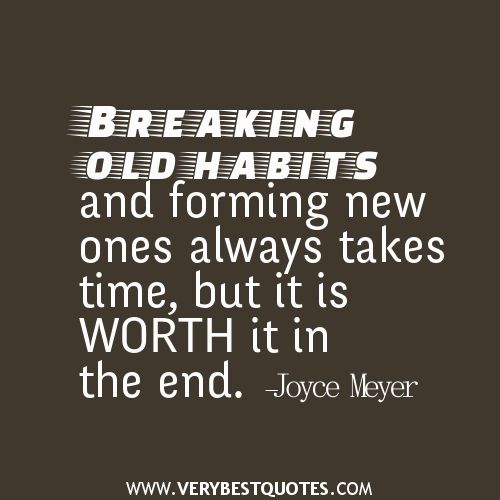
You see, in the decades that followed, Maltz’s work influenced nearly every major “self-help” professional from Zig Ziglar to Brian Tracy to Tony Robbins. And as more people recited Maltz’s story — like a very long game of “Telephone” — people began to forget that he said “a minimum of about 21 days” and shortened it to, “It takes 21 days to form a new habit.”
And that’s how society started spreading the common myth that it takes 21 days to form a new habit (or 30 days or some other magic number). It’s remarkable how often these timelines are quoted as statistical facts. Dangerous lesson: If enough people say something enough times, then everyone else starts to believe it.
It makes sense why the “21 Days” Myth would spread. It’s easy to understand. The time frame is short enough to be inspiring, but long enough to be believable. And who wouldn’t like the idea of changing your life in just three weeks?
But the problem is that Maxwell Maltz was simply observing what was going on around him and wasn’t making a statement of fact.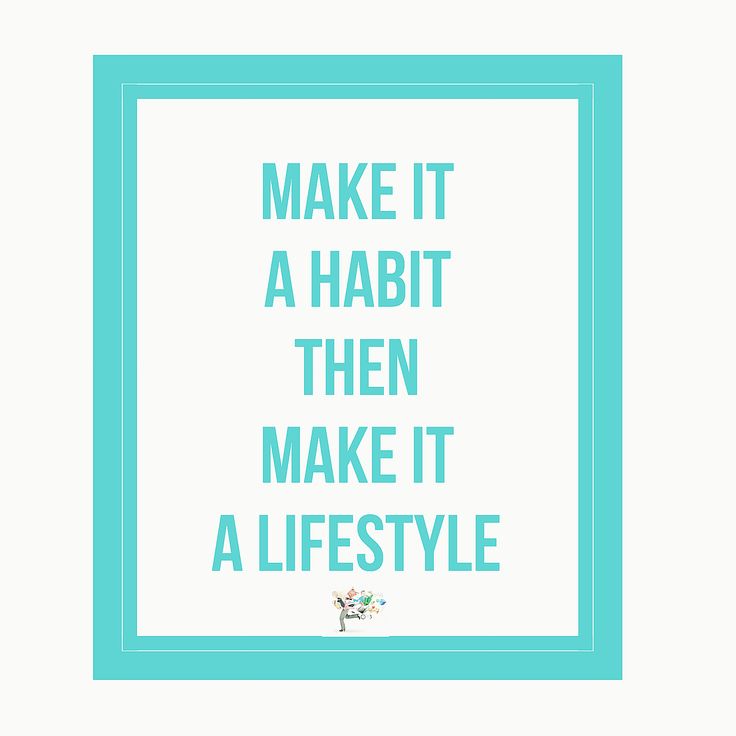 Furthermore, he made sure to say that this was the minimum amount of time needed to adapt to a new change.
Furthermore, he made sure to say that this was the minimum amount of time needed to adapt to a new change.
So what’s the real answer? How long does it take to form a habit? How long does it take a break a bad habit? Is there any science to back this up? And what does all of this mean for you and me?
How Long it Really Takes to Build a New Habit
Phillippa Lally is a health psychology researcher at University College London. In a study published in the European Journal of Social Psychology, Lally and her research team decided to figure out just how long it actually takes to form a habit.
The study examined the habits of 96 people over a 12-week period. Each person chose one new habit for the 12 weeks and reported each day on whether or not they did the behavior and how automatic the behavior felt.
Some people chose simple habits like “drinking a bottle of water with lunch.” Others chose more difficult tasks like “running for 15 minutes before dinner. ” At the end of the 12 weeks, the researchers analyzed the data to determine how long it took each person to go from starting a new behavior to automatically doing it.
” At the end of the 12 weeks, the researchers analyzed the data to determine how long it took each person to go from starting a new behavior to automatically doing it.
The answer?
On average, it takes more than 2 months before a new behavior becomes automatic — 66 days to be exact. And how long it takes a new habit to form can vary widely depending on the behavior, the person, and the circumstances. In Lally’s study, it took anywhere from 18 days to 254 days for people to form a new habit. 1
In other words, if you want to set your expectations appropriately, the truth is that it will probably take you anywhere from two months to eight months to build a new behavior into your life — not 21 days.
Interestingly, the researchers also found that “missing one opportunity to perform the behavior did not materially affect the habit formation process.” In other words, it doesn’t matter if you mess up every now and then. Building better habits is not an all-or-nothing process.
Finding Inspiration in the Long Road
Before you let this dishearten you, let’s talk about three reasons why this research is actually inspiring.
First, there is no reason to get down on yourself if you try something for a few weeks and it doesn’t become a habit. It’s supposed to take longer than that! There is no need to judge yourself if you can’t master a behavior in 21 short days. Learn to love your 10 Years of Silence. Embrace the long, slow walk to greatness and focus on putting in your reps.
Second, you don’t have to be perfect. Making a mistake once or twice has no measurable impact on your long-term habits. This is why you should treat failure like a scientist, give yourself permission to make mistakes, and develop strategies for getting back on track quickly.
And third, embracing longer timelines can help us realize that habits are a process and not an event. All of the “21 Days” hype can make it really easy to think, “Oh, I’ll just do this and it’ll be done.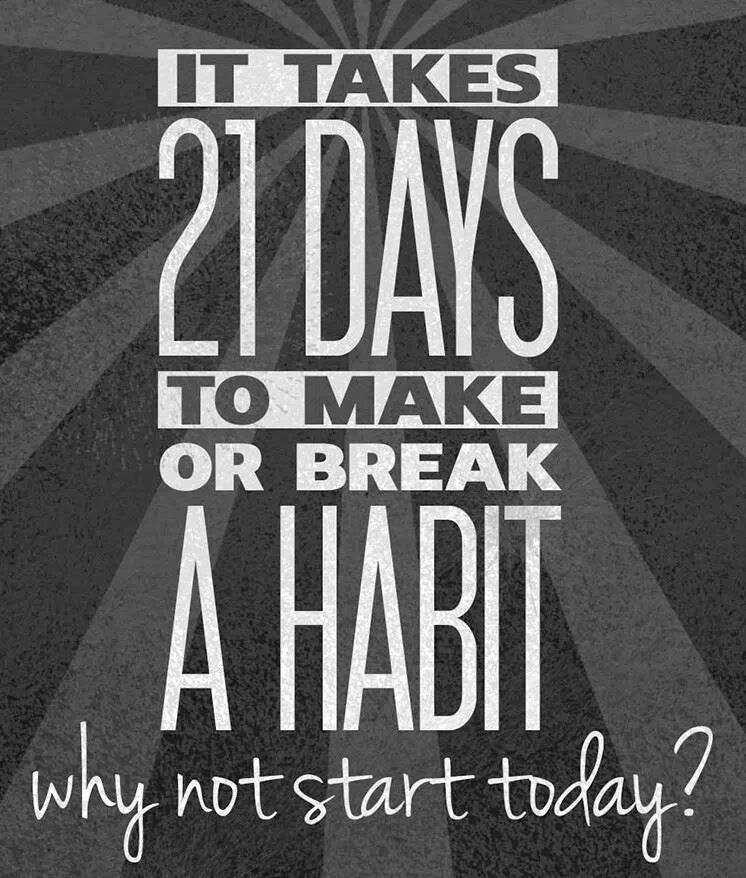 ” But habits never work that way. You have to embrace the process. You have to commit to the system.
” But habits never work that way. You have to embrace the process. You have to commit to the system.
Understanding this from the beginning makes it easier to manage your expectations and commit to making small, incremental improvements — rather than pressuring yourself into thinking that you have to do it all at once.
Where to Go From Here
At the end of the day, how long it takes to form a particular habit doesn’t really matter that much. Whether it takes 50 days or 500 days, you have to put in the work either way.
The only way to get to Day 500 is to start with Day 1. So forget about the number and focus on doing the work.
If you want more practical ideas for breaking bad habits and creating good habits, check out my book Atomic Habits, which will show you how small changes in habits can lead to remarkable results.
Footnotes
Even though the study only ran for 12 weeks, the researchers were able to use the data to estimate the longer timelines (like 254 days) to form habits.
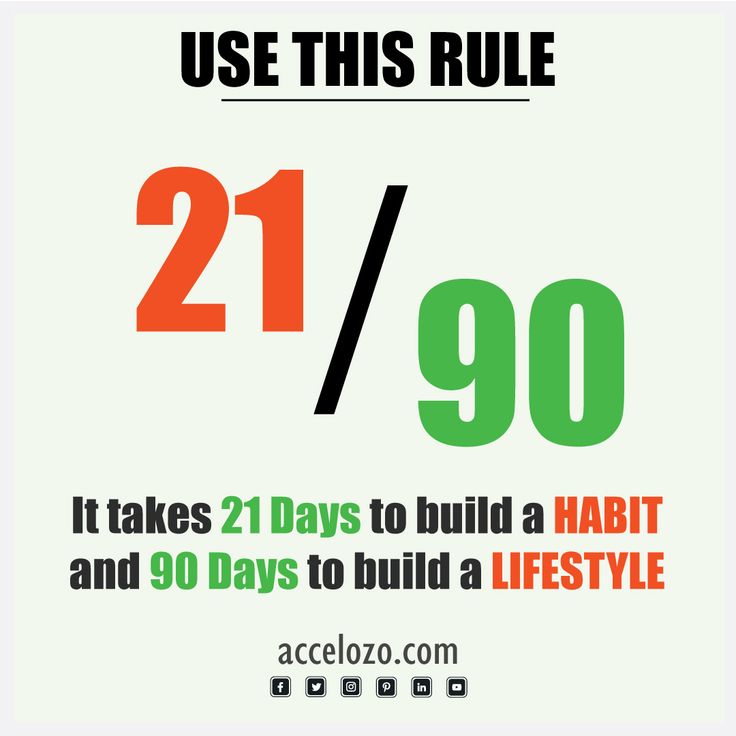 Again, the exact time depends on a variety of factors and isn’t nearly as important as the overall message: habits can take a long time to form.
Again, the exact time depends on a variety of factors and isn’t nearly as important as the overall message: habits can take a long time to form.
How many days does it take to create a new habit?
Where did this mythical number come from - 21 days?
Maxwell Maltz was a famous plastic surgeon in the fifties of the twentieth century. And one day he discovered a strange pattern.
When Maltz performed an operation - for example, to correct the nose - he noticed that it took about 21 days for patients to get used to a new face. And when a patient's arm or leg was amputated, most patients also experienced phantom pain for about 21 days until they adjusted to the new situation.
This experience made Maltz remember his personal experience of getting used to changes and new behavior. He realized that it also took him about 21 days to form a new habit.
Maltz wrote about this experience and said:
"These and many other frequently observed phenomena generally show that takes at least 21 days for the old mental image to dissipate and be replaced by the new . "
"
In 1960, Maltz published this quote and other thoughts on behavior change in a book called Psycho-Cybernetics. The book became a bestseller and has sold over 30 million copies.
And then there was a problem.
In the following decades, Maltz's work influenced almost every self-help professional from Zig Ziglar to Brian Tracy and Tony Robbins. And as in the game of "broken phone" - the more people retold the story of Maltz, the more people began to forget that he said: "at least 21 days." The quote was shortened and this is what came out:
"It takes 21 days to form a habit."
So a well-known myth spread in society that it takes 21 days (or 30 days or some other magic number) to create a habit.
Dangerous Lesson: If enough people repeat something enough times, then everyone else starts believing it.
It's easy to see why the 21-Day Myth has become so widespread.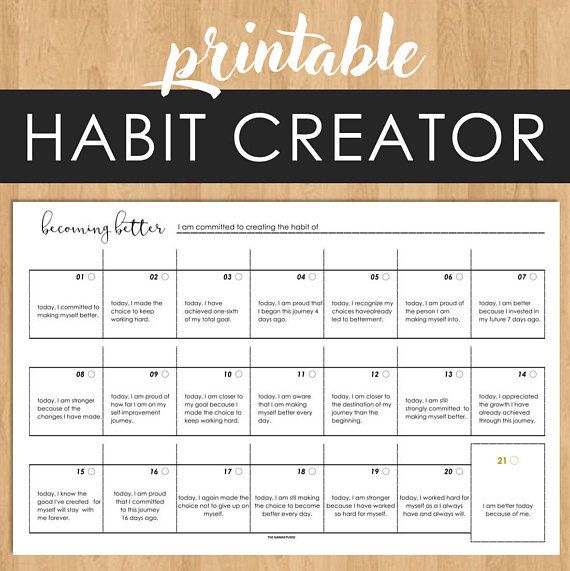 It's short enough to inspire us and long enough to be believable. Who wouldn't like the idea of changing their lives in 3 weeks?
It's short enough to inspire us and long enough to be believable. Who wouldn't like the idea of changing their lives in 3 weeks?
But the problem is that Maltz simply observed what was going on around him and did not state it as a fact. Moreover, he assured that this is exactly the minimum amount of time needed to adapt to changes .
But what is the real answer?
How long does it actually take to create new habits? What does science say about this?
And what does all this mean for you and me?
Science provides the answer. And as always, it is quite unexpected...
University College London decided to find out the exact answer.
The 96 participants in were asked to choose a new habit they would like to acquire. Most were health-related, such as "eating a piece of fruit with lunch" or "jogging 15 minutes after dinner."
All 84 days of the study, they visited the site and left a small report: whether they performed the action, and how automatically it felt.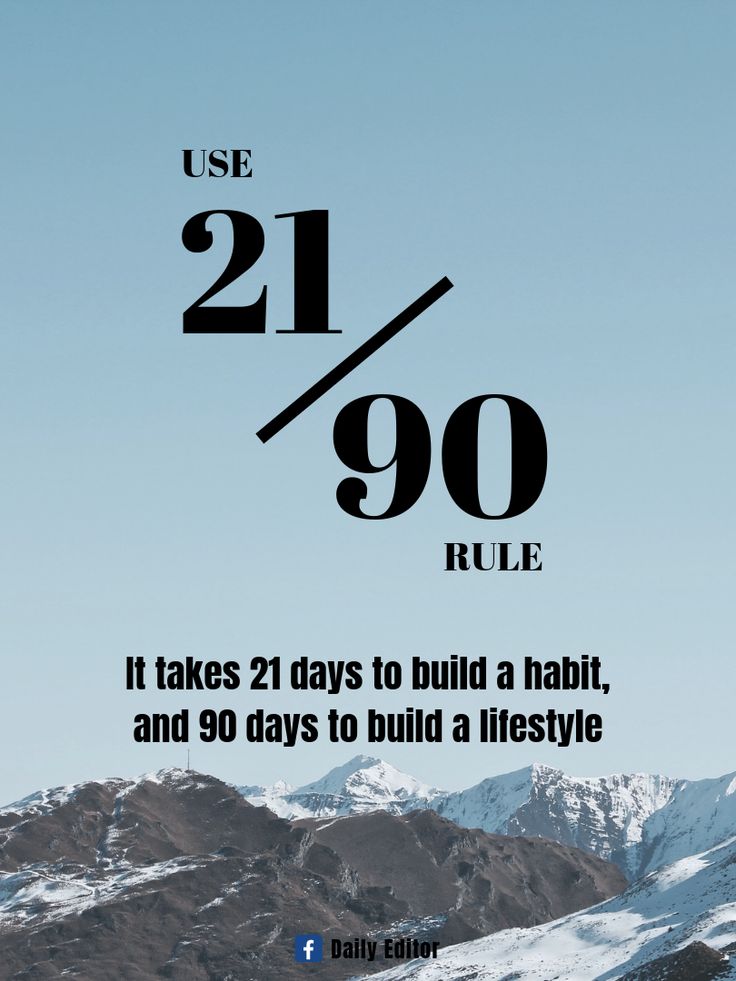
Doing an action without thinking - known in science as "automaticity" - turns out to be the main driver of habits. And it helps illuminate the real question: How long does it take to actually form a habit?
On average, participants who provided sufficient data took 66 days to form the habit .
Of course, there were significant differences in how long the habit took to form depending on what exactly needed to be done.
Those who simply had to drink a glass of water after breakfast achieved maximum automatism after about 20 days.
Those who were used to eating fruit at dinner took at least twice as long to form the habit.
The habit of exercise has become the most difficult.
“50 squats after morning coffee” did not become a habit for any of the participants.
“Walking 10 minutes after breakfast” became a habit for several participants after 50 days.
And as usual, the path to excellence is not a straight line.
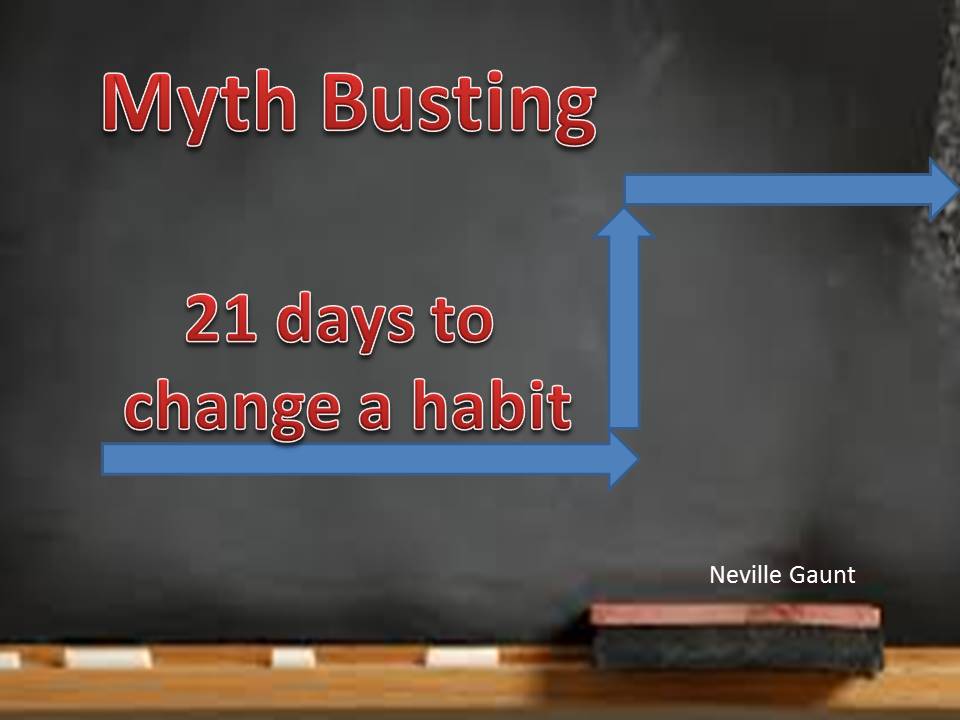
When the researchers combined the results into a single graph, they found a relationship curve between habit and automaticity, not a straight line.
Early repetitions were most beneficial in establishing the habit, and the benefits gradually decreased over time.
It's like climbing a mountain. First there is a steep climb and you quickly move forward.
Then the climb flattens out, and the closer you get to the top, the smaller the increase in height with each step.
Some of us find it harder than others
The decline in the rate of consolidation was particularly pronounced among some participants for whom habit formation was particularly difficult. So much so that the researchers were surprised at how slowly some habits formed:
Although the study lasted only 84 days, by extrapolating the curves, it was found that some habits can take up to to form up to 254 days - most of the year !
Findings - inspiring and not so
What does this study show?
- Often, building a habit takes much longer than we think .
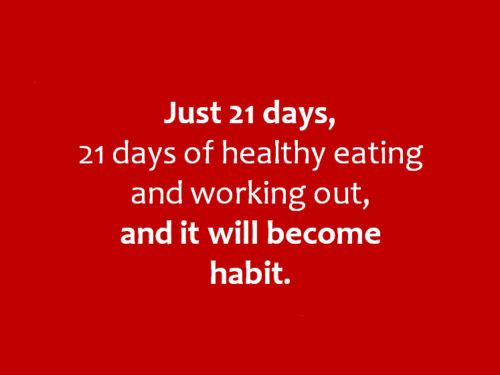
This explains why we so often give up what we started. For example, running in the morning, or eating healthier, or not breaking down or screaming over nothing. You just need more time! And you just need to understand it, and be ready for it. - 21 days is enough to create a habit if it is something very simple . For example, drink a glass of water after breakfast.
- Anything more complex will take longer. And in some activities, much, much more. Count on 50-60 days and even more. Sometimes it may take a whole year.
- For some of us, habits are especially difficult.
In this case, you need to start with something very simple. And understand that you may have to spend more time. Practice, so to speak, on cats, understand the mechanics of the process and what works for you. And then move on to more complex ones.
I can tell you by myself that by practicing different habits, mastering some and failing others, you will understand how it works, and over time you can learn to develop habits much easier and with greater success.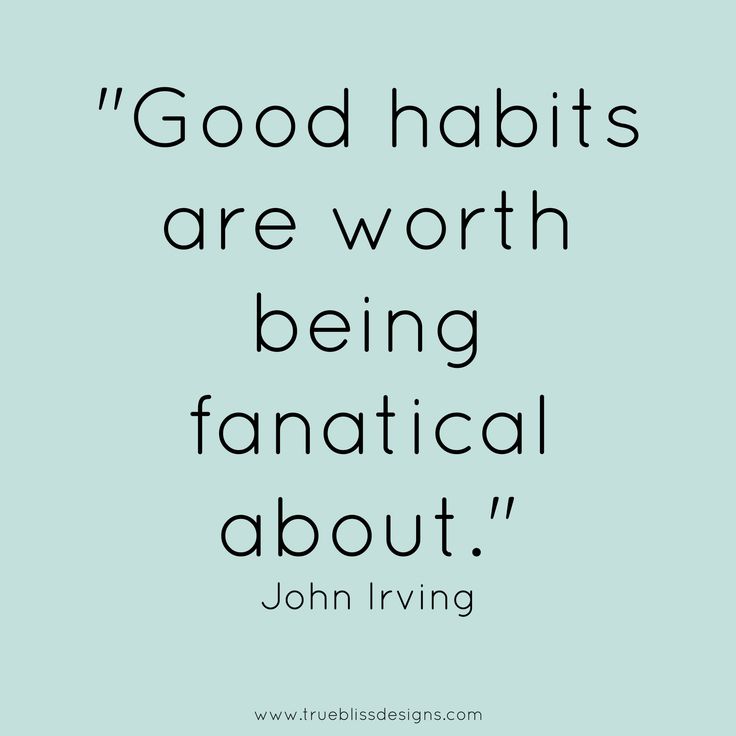
Because habit is not something supernatural. It's just a matter of perseverance and "deliberate practice." Even Aristotle warned us about this:
We are what we do all the time. Perfection, therefore, is not an act, but a habit.
In the end, it doesn't matter how many days it takes you to form the habit you want - 50 or 500. One way or another, you can do it.
All you have to do is start from day one and repeat over and over again. Forget the numbers and just do your job for today.
Sources:
– How are habits formed: Modeling habit formation in the real world
_
How long does it take to form a new habit?: bdsmn - LiveJournal
Maxwell Maltz worked as a plastic surgeon in the 1950s. Over time, he began to notice, among his patients, a strange pattern.
When Dr. Maltz finished an operation, such as reshaping the nose, he found that it took the patient about 21 days to get used to his new face.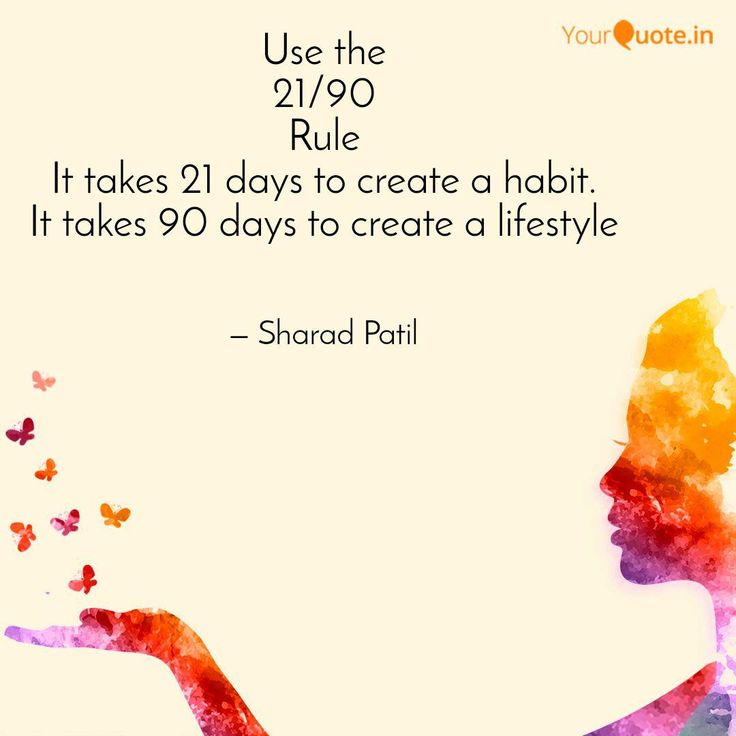 Similarly, when a patient's arm or leg was amputated, Maltz noticed that the patient felt the phantom limb for about 21 days.
Similarly, when a patient's arm or leg was amputated, Maltz noticed that the patient felt the phantom limb for about 21 days.
These observations prompted Maltz to investigate the question of human adaptation to physical change. As a result, he noticed that it takes about 21 days for a person to develop a new habit. Maltz wrote the following about his observations: "These and many other frequently observed phenomena, as a rule, show that it takes a person at least 21 days to dissolve his old mental image and form a new one."
In 1960, Maltz published this quote in a book called "Psycho-Cybernetics". The book became a bestseller, selling over 30 million copies.
This is where the problems started.
You see, in the following decades, Maltz's work was tested by thousands of scientists. And over time, "at least 21 days" dwindled to "requires 21 days."
And from that moment on, the myth began to spread in society that it takes a person 21 days to form a new habit (or 30 days, as an alternative).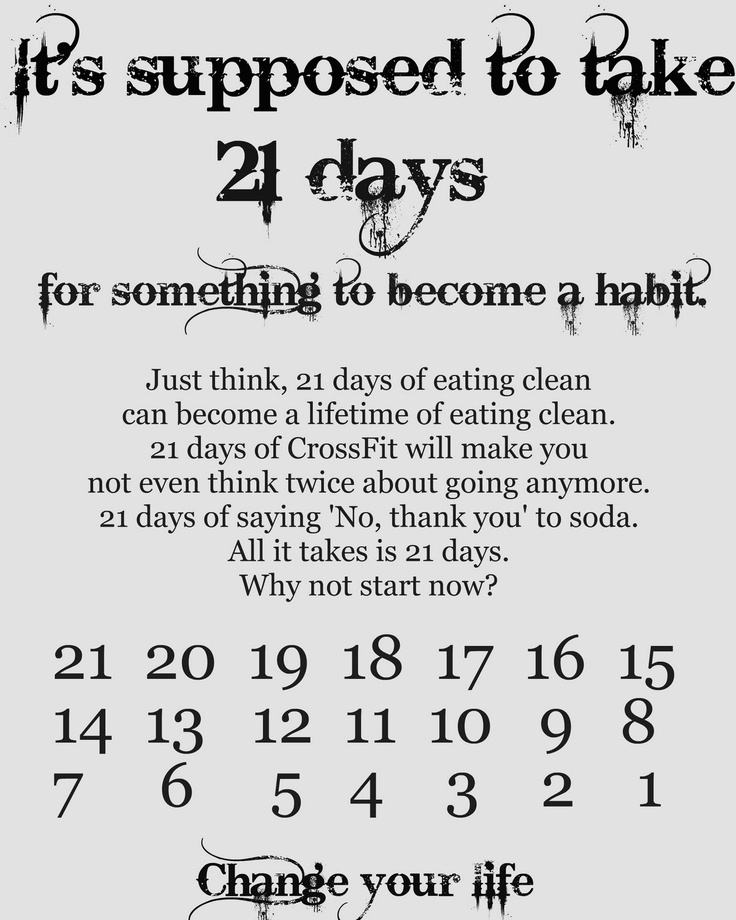 It's surprising how often these numbers are labeled "proven by science." Therein lies the danger. The more people believe in a fact, the more likely society is to accept that fact as truth.
It's surprising how often these numbers are labeled "proven by science." Therein lies the danger. The more people believe in a fact, the more likely society is to accept that fact as truth.
This myth, called "21 days" , has long been considered a true and scientifically proven hard fact in Western society. And it's easy to understand. 21 days is short enough to inspire, but long enough to be easily achievable. The myth seems to be on the verge of reality and fiction. And really, who doesn't love the idea of changing their life in just three weeks?
But the problem is that Maltz simply observed, he showed, but did not prove, what was happening around him, and did not state the fact. In addition, we should not forget the way he formulated the conclusions of his observations. He did not indicate the exact figure, let me remind you, he spoke about the "minimum amount of time" that a person needed to adapt to new changes.
So what is the correct answer? How long does it take to form a new habit? Is there any scientific evidence for this? And what does all this mean for all of us?
Recently, Philippa Lalli, a health psychology researcher, published her new study in the European Journal of Social Psychology.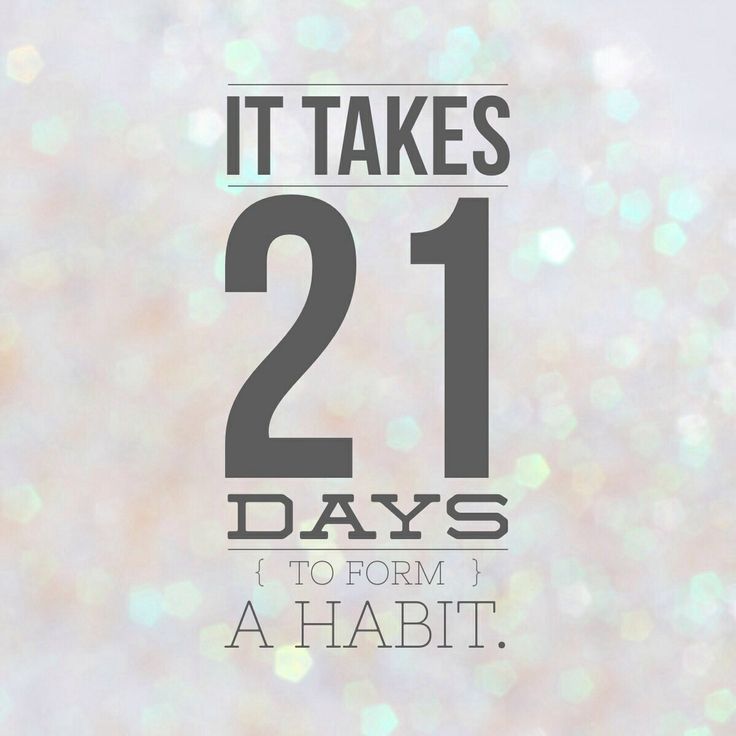 Lally and her research team set out to find out how long it actually takes to form a habit.
Lally and her research team set out to find out how long it actually takes to form a habit.
The study examined the habits of 96 people, and the study itself lasted for 12 weeks (84 days). During the study, participants chose a habit they planned to form over a specified period.
Some of the participants opted for simple habits such as "drinking a bottle of water with lunch". Others opted for more challenging tasks, such as "regular 15-minute runs before dinner." At the end of week 12, the scientists analyzed the data to determine how long it took each person to go from initiating a new behavior to automating the process.
Results?
On average, it takes the average person more than 2 months to form a habit, more than 66 days to be precise. And this figure can vary significantly depending on the nature of the person and the circumstances. In Lally's study, there is a clear conclusion that "it takes 18 to 254 days to form a habit."
In other words, if you want to start exercising regularly, go to bed early, eat right, and make it a habit, it will take you one to eight months to form it.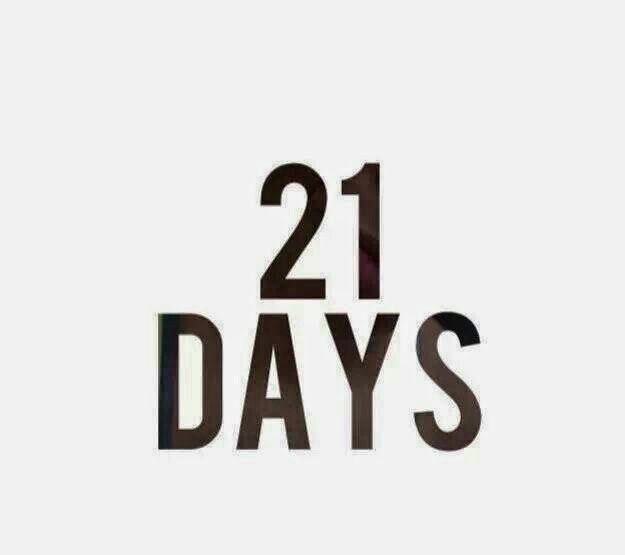
Interestingly, the researchers also found that they "lack any ability to analyze and identify different types of behavior that uniquely and significantly affect the process of habit formation." In other words, it doesn't matter when you stumble, now or later, it's all a process.
A simple tip: "Be inspired by the long journey."
What conclusions can we draw?
First, don't be surprised that you can't form a habit in 21 days, a month, or even two. It just takes more time! How? No one knows. There's no need to judge yourself if you can't meet 21 days. Just imagine that you are walking "towards" without mileage. Just go ahead.
Second, you are not perfect. If you stumble once or twice, you will have no effect on the formation of a long-term habit. That's why you should take all your failures as a lesson, give yourself the right to make mistakes, and develop strategies for getting back on track.
And third, realize that a habit is a process, not an event.









